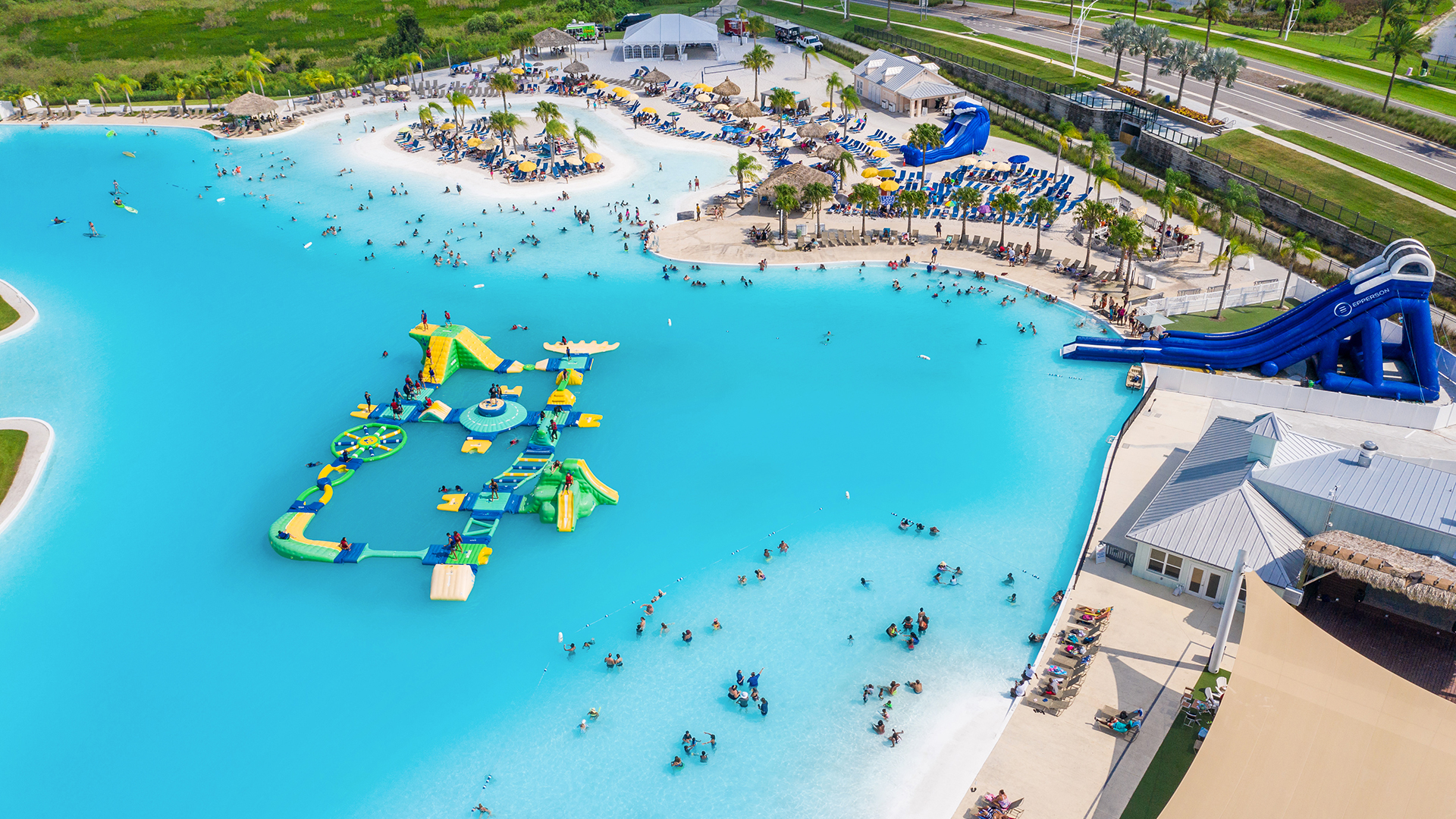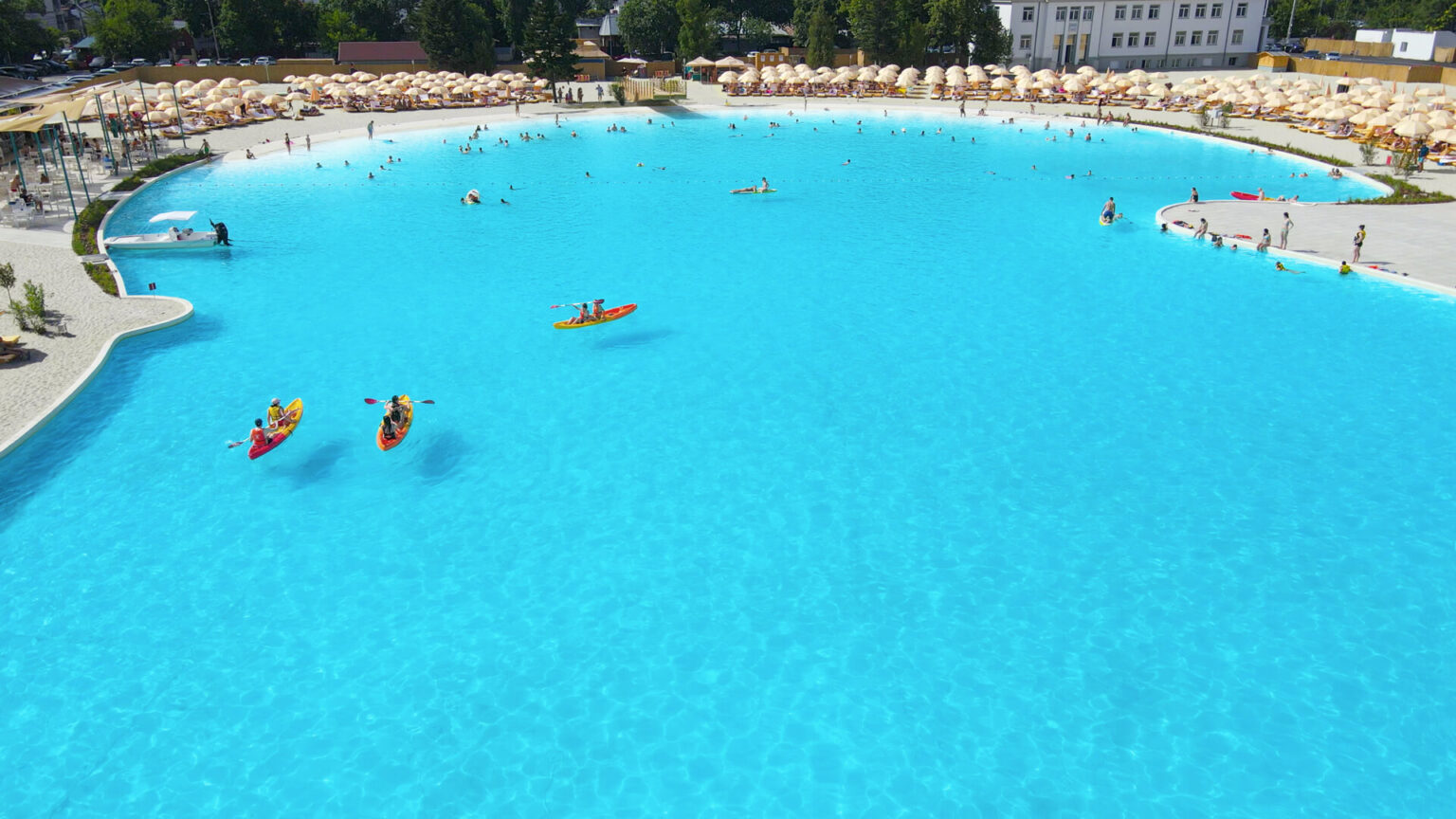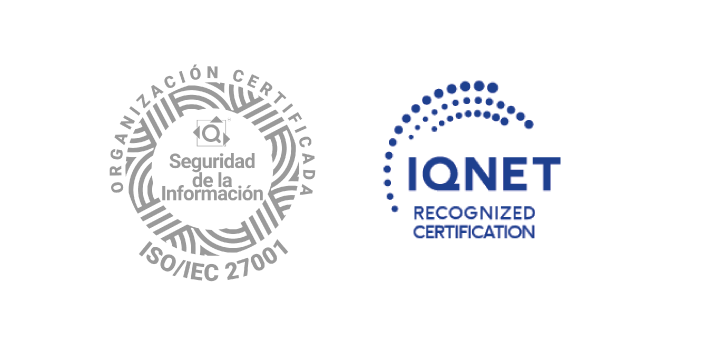Crystal Lagoons already has a strong presence in Latin America, with 200 projects at different stages of development and negotiations in Mexico, Argentina, Colombia, Chile, Paraguay, Bolivia, the Caribbean region, and other countries. The multinational innovation company has signed a master agreement with Grupo Monarch to develop Public Access Lagoons™ projects in Guyana and Suriname
The agreement is centered on developing the real estate, financial, and tourist potential these crystalline lagoons offer, transforming urban lifestyle by introducing idyllic beaches in the middle of major cities. Having observed the successful Crystal Lagoons business model of scientist and founder Fernando Fischmann in other countries worldwide, the conglomerate decided to diversify its portfolio into real estate.
In Guyana, the venture will seek to capitalize on an expanding economy that has seen a 60% growth in GDP due to the discovery of oil deposits in recent years. The first of several PAL™ projects will be developed in Guyana’s capital, Georgetown, which has a coastline with unattractive water for bathing. The new resort will be called “Golf Club Houses & Eco Hotel”. It will feature a lagoon as the central attraction, surrounded by a hotel complex, a golf course, residential homes, and other infrastructure typical of this public access model.
“The expansion of the Crystal Lagoons in Guyana and Suriname proves the added value of this amenity and its role as a catalyst in creating urban development hubs. For the price of an entrance fee, the general public will be able to enjoy the crystalline lagoons and white sandy beaches of the PAL™ complexes, a true tropical paradise in the middle of a city,” said Miguel Angel Cabañas, regional director of Crystal Lagoons for Latin America and the Caribbean.
These large bodies of crystalline water maximize the touristic potential of urban areas in different countries and cultures by creating environmentally friendly hotspots. PAL™ projects have received several international awards for their sustainable technology that has been certified by Bureau Veritas for its minimal use of water – which is 40% lower than a green area of equivalent size and 33 times less than an 18-hole golf course – and energy, which is only 2% of the power required by conventional swimming pool filtration systems.






